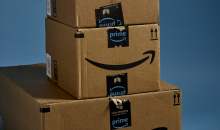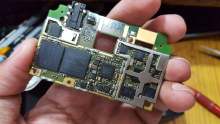The Stop Hate for Profit campaign was launched on June 17th in the wake of the global anti-racism protests that followed the killing of George Floyd. It is led by a coalition of US civil rights and non-profit organisations including ADL, Color of Change, Common Sense, Free Press, LULAC, Mozilla, NAACP, National Hispanic Media Center, and Sleeping Giants.
The campaign is asking businesses to withhold all paid advertising from Facebook and the other platforms it owns (including Instagram and WhatsApp) for the month of July.
More than 500 companies are reported to be participating in the boycott, with still more pausing advertising on Facebook despite not officially signing up to the campaign. North Face was the first big brand to join the boycott on July 19, and the list now includes Unilever, Adidas, Ford, Levi's and Volkswagen.
Why are campaigners targeting Facebook?
Campaigners and advertisers have long called for social media companies to take greater responsibility for their role in allowing harmful misinformation and hateful ideologies to spread. These criticisms have intensified in recent times, in part due to the social media activities of Donald Trump, whose repeated fallacious and inflammatory posts have been allowed to influence millions of followers.
In May this year, Trump was widely condemned for inciting violence with his posts on social media in response to the George Floyd protests, including the statement “when the looting starts the shooting starts”.
Twitter acted to hide the comment for 'glorifying violence' and violating its policies. However, when the identical statement was posted on its Facebook, it was allowed to remain. CEO Mark Zuckerberg stated “I disagree strongly with how the President spoke about this, but I believe people should be able to see this for themselves…”. This was despite Zuckerberg having testified before congress in October that any content calling for violence “including [by] a politician” would be taken down.
Trump’s words proved the catalyst for the campaign, but the problems with Facebook’s approach to moderating harmful content go far beyond the president’s posts.
Facebook uses algorithms to recommend pages and groups to individual users, and groups peddling hate and extremism are frequently promoted in this way: Facebook’s own study found that 64% of the users in extremist German groups joined due to the platform’s recommendations.
The propagation of hate speech on the platform has already had devastating real world consequences. A United Nations report says the use of Facebook played a “determining role” in the country’s military spreading hateful propaganda against Myanmar’s Rohingya, where a genocidal campaign has seen tens of thousands die and hundreds of thousands displaced.
The impact on individuals is also clear. A 2020 survey of American social media users carried out by Anti-Defamation League found that 42 percent of daily Facebook users experienced harassment on the platform. It also recorded an alarming increase in religion-based and race-based harassment across all social media platforms between 2019 and 2020.
How other platforms are responding
Against this backdrop, other social media companies have taken steps in the right direction. Reddit has banned a number of its communities (known as subreddits), including the largest pro-Trump group, following an update to its policy against identity-based hatred.
YouTube has removed the accounts of white supremacists Richard Spencer and David Duke, and on Twitch, Trump was temporarily banned after several of his speeches were flagged as inciting racial hatred.
Facebook, meanwhile, has appeared more resistant to applying greater content moderation, with Zuckerberg suggesting such actions made companies ‘arbiters of truth’.
What are the demands?
Stop Hate for Profit outlines ten actions for Facebook that it says would result in ‘real progress’. The demands set out a proposal for how Facebook could restructure its approach to dealing with hate speech and misinformation, based on concepts of Accountability, Decency and Support.





